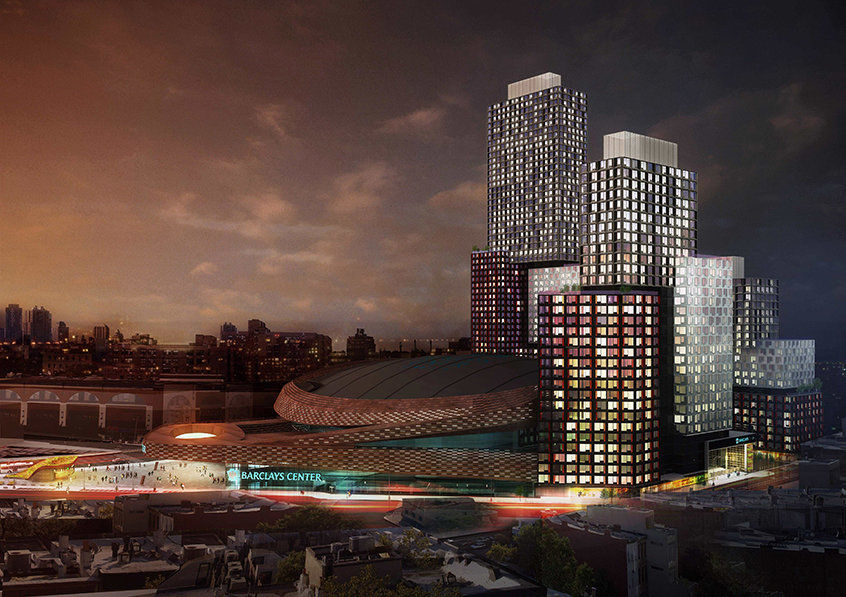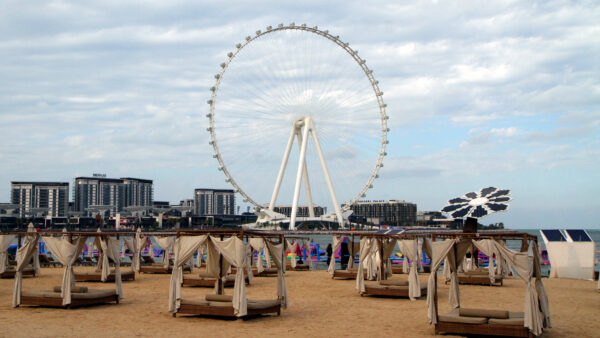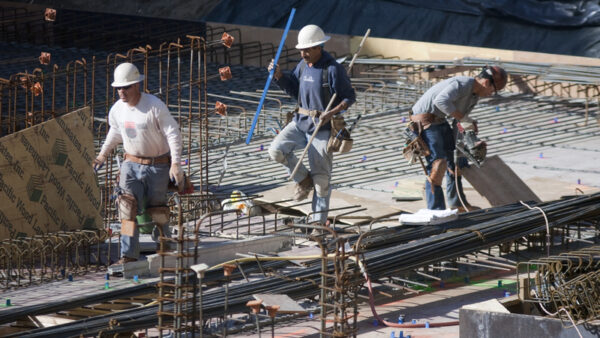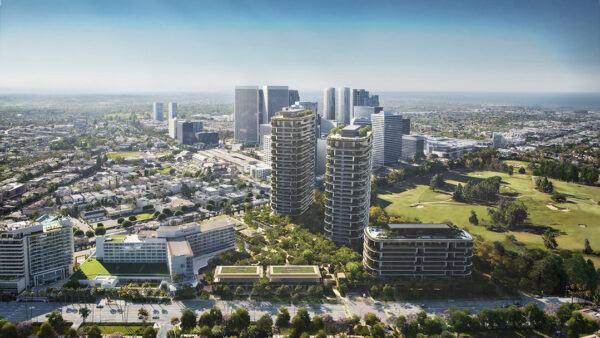Skanska’s American subsidiary has become embroiled in a legal battle over an innovative modular skyscraper it was building in New York City.
The row over the innovative B2 tower, part of the Pacific Park Brooklyn development (pictured), become public after Skanska USA ceased work on the project citing problems with the design. GCR understands that the move was the culmination of a dispute that had gone on for some months over increased costs and delays.
Richard Kennedy, the co-chief operating officer of Skanska USA, told the Wall Street Journal: “The design just doesn’t work the way it was sold to work. It was represented to be a complete and buildable modular design. That simply was not the case and that’s what we’ve been struggling with.”
After Skanska walked off site, the scheme’s developer, Forest City Ratner, issued a statement saying: “We are extremely disappointed that Skanska has unilaterally and wrongfully stopped work.” Both parties immediately issued writs against the other in the New York state supreme court alleging violation of the contract.
The stoppage is the latest blow to the scheme, which was intended to show how modular construction could create affordable housing in urban centres. At 32-storeys (100m), it was intended to be the tallest modular tower ever built, with 60% of the fabric completed off site.
After a number of delays, the first phase of Pacific Park Brooklyn began in 2012. The final scheme was intended to create 363 apartments (181 of them “affordable”) at a discount of 20% to the usual cost of such a building. Each apartment is composed of three modules, and each has appliances, plumbing and services already included.

A computer graphic of the Pacific Park Brooklyn development (asdf/Wikimedia Commons)
Skanska agreed to build the tower and also entered into a joint venture with Forest City to create the factory that would manufacture the scheme’s modules.
The project is understood to have been worth $117m to Skanska. However, it has been reported in the US press that it has already incurred costs several tens of millions of dollars above that figure.
MaryAnn Gilmartin, Forest City’s chief executive, wrote to Skanska on Thusday last week to offer to take over this factory, called FCS Modular, and restart production of the housing units.
In the letter, Gilmartin said Skanska had not kept to agreed timetables and budgets. She said: “We strongly believe, as a joint venture, we have an obligation to the 157 workers who have lost their jobs because of the unauthorized, forced furlough that you, as managing member, have imposed on them.”
Kennedy said the letter was a publicity stunt because the US media received it before he did. “Forest City has proven it is more interested in engaging in a propaganda exercise to take the public’s eye off the serious consequences of its failures,” he said, “instead of simply fixing the commercial and design issues that led to the unfortunate need to shut down the project and factory. As for the letter itself, it is completely devoid of substance.”
Despite the acrimony, Gilmartin stressed that her company still believed in “the modular business model”. For its part, Skanska indicated that it would like to resolve the legal dispute and restart work.
Forest City is also developing the neighbouring Barclays Centre and is also planning a mixed-use project in the surrounding area.
The scheme was intended to show how modular construction could create affordable housing in urban centres–
Meanwhile, Skanska’s UK arm has been chosen as preferred bidder for the £600m second phase of the Battersea Power Station. The contractor was picked from a shortlist that also included Balfour Beatty, Lend Lease and Mace to take the contract.
Mace was appointed construction manager for the £100m preliminary works for phase two, which began in October 2013. This includes deconstruction of the familiar chimneys, which began this week.
The team working alongside Mace includes structural engineer Buro Happold, conservation adviser Purcell, project manager Turner & Townsend and cost consultant Gardiner & Theobald.
Phase two of the development includes new retail space adjacent to the power station’s two turbine halls, as well as commercial office space and residential apartments. Construction is expected to begin in March next year.
Skanska is working on an £88.6m contract to fit out residential units for the first phase of the scheme. The development, called Circus West, started in December 2013. Carillion is main contractor for the 866-unit scheme, which is due to finish in autumn 2016.






